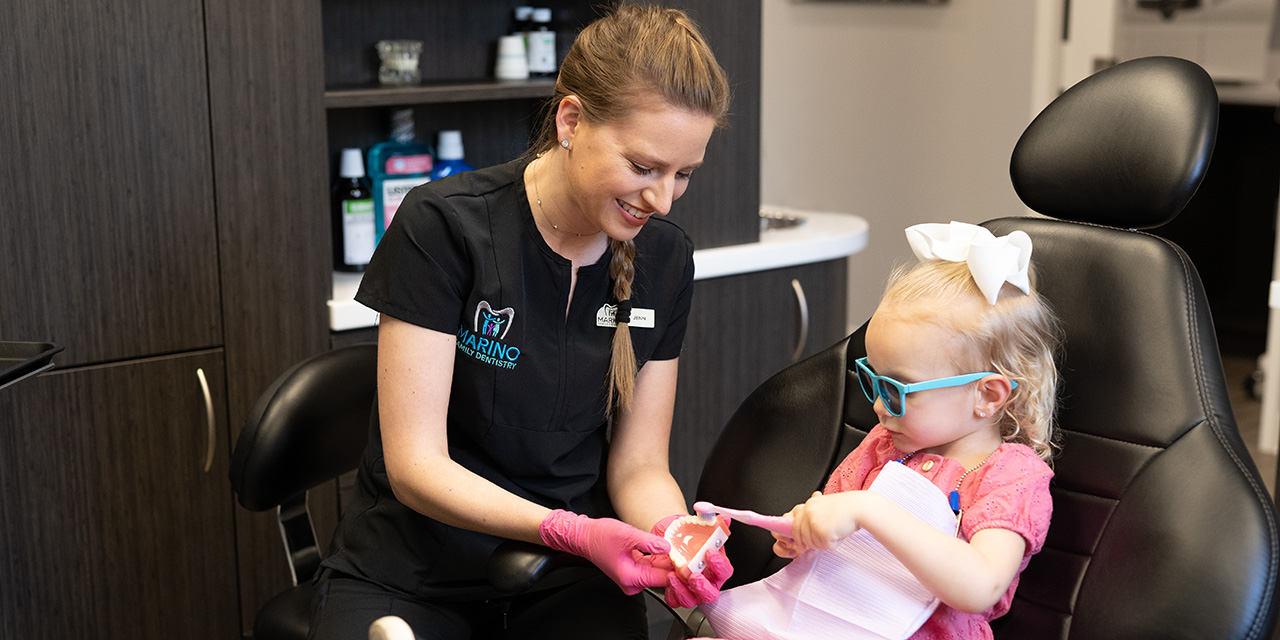Common Concerns Regarding Oral Veneers Responded To
Oral veneers have actually become a significantly in-demand alternative for those looking to improve their smiles, yet lots of individuals continue to be unpredictable regarding different aspects of their usage. Trick concerns commonly arise relating to the application procedure, longevity, and prospective risks connected with these aesthetic enhancements. Moreover, the difference in between porcelain and composite veneers can substantially affect one's choice. As we explore these common queries, it ends up being essential to consider not only the benefits but likewise the implications of opting for oral veneers in pursuit of a more confident look. What aspects should one evaluate prior to making such a choice?
What Are Dental Veneers?
Oral veneers are thin, customized coverings crafted from porcelain or composite resin that are designed to cover the front surface of teeth. These dental prosthetics offer both aesthetic and practical purposes, providing an option for numerous dental blemishes, consisting of discoloration, chips, voids, and imbalance. By adhering to the teeth, veneers can significantly improve the total appearance of a smile, creating a more uniform and eye-catching appearance.
Porcelain veneers are especially favored for their all-natural translucency and tarnish resistance, making them an optimal option for people looking for lasting outcomes. In contrast, composite resin veneers are normally cheaper and can be applied in a solitary check out, however they might not supply the same resilience as porcelain alternatives.
The decision to select dental veneers commonly comes from a wish for visual enhancement, but patients ought to also consider factors such as the long life of the product, upkeep needs, and the potential requirement for tooth decrease (Porcelain Veneers Washington DC). Eventually, dental veneers stand for a versatile and effective service for accomplishing a glowing smile, accommodating specific cosmetic requirements while promoting confidence and self-worth
How Are Veneers Applied?
The application procedure for veneers requires careful preparation and precision to make sure ideal results. The treatment normally starts with a comprehensive appointment, where the dental practitioner evaluates the person's dental health and wellness, reviews wanted end results, and establishes the suitable sort of veneers, whether porcelain or composite material.
As soon as the treatment plan is established, the dental practitioner prepares the teeth by getting rid of a slim layer of enamel, usually concerning 0.5 mm to 1 mm, to accommodate the veneer. This action is crucial as it makes sure a proper fit and avoids the veneers from showing up large - Veneers. After prep work, perceptions of the teeth are taken to develop personalized veneers that match the client's unique oral framework and aesthetic choices
While the permanent veneers are being fabricated in a dental lab, short-lived veneers might be placed to protect the ready teeth. As soon as the permanent veneers prepare, the dentist will very carefully bond them to the teeth utilizing a strong dental adhesive. Final modifications are made to make sure appropriate alignment and bite, adhered to by brightening for a natural look. The process finishes in a follow-up appointment to monitor the veneers' fit and the client's complete satisfaction with their new smile.
What Are the Benefits?

Furthermore, veneers are known for their longevity and resistance to tarnishing compared to natural teeth. Made from high-grade visit site materials such as porcelain or composite material, they can preserve their appearance for years with proper care. This durability makes them a sensible financial investment in one's oral appearance.
In enhancement to aesthetic improvements, veneers can also add to enhanced dental health and wellness. By covering damaged or deteriorated teeth, they can supply additional support and security, aiding to stop further degeneration or degeneration. This safety aspect can minimize the demand for extra considerable dental procedures in the future.

How Much Time Do They Last?
With correct treatment and upkeep, oral veneers can last anywhere from 10 to 15 years, making them a durable solution for improving one's smile. The long life of veneers greatly depends upon the material made use of, the quality of the preliminary positioning, and the patient's adherence to oral health practices.
Porcelain veneers are understood for their toughness and resistance to staining, normally lasting closer to the 15-year mark when taken care of suitably. Compound veneers, while more affordable, might need substitute earlier, usually within 5 to 10 years as a result of their vulnerability to put try this on and discoloration.

In addition, wearing a mouthguard throughout sporting activities or nighttime can offer additional security. Ultimately, while veneers use a significant aesthetic enhancement, their long life is substantially affected by the dedication to appropriate dental treatment and regular examinations with an oral professional.
Are There Any Type Of Dangers?
Taking into consideration the transformative effects of dental veneers, it's essential to recognize the potential risks related to their application. While veneers can enhance the look of teeth, the procedure includes the removal of a thin layer of enamel, which can increase tooth sensitivity and vulnerability to degeneration.
One significant danger is read this post here the possibility of improper placement or suitable, causing pain, bite misalignment, or perhaps damage to the underlying tooth structure. In addition, if the veneers are not maintained correctly, they can become discolored or cracked gradually, necessitating substitute.
Patients may also experience sensitive reactions to the materials made use of in the veneers, particularly if they have sensitivities to certain dental compounds. Moreover, while veneers are sturdy, they are not unbreakable; excessive force from clinching or grinding can result in cracks.
It is crucial for people to talk to a certified oral expert to assess their private risks and to follow aftercare directions faithfully. By understanding these threats, patients can make informed decisions concerning their oral veneer therapy and guarantee the longevity and success of their improvements.
Conclusion
In summary, dental veneers stand for an important cosmetic solution for boosting smiles, with considerations concerning their application, advantages, long life, and associated dangers. Their performance is influenced by variables such as the option of product, with porcelain offering exceptional durability compared to composite alternatives. Correct care and maintenance are vital to make the most of the life expectancy of veneers. Ultimately, educated decision-making concerning dental veneers can result in sufficient visual outcomes and enhanced oral health.
Oral veneers are thin, custom-made shells crafted from porcelain or composite material that are designed to cover the front surface of teeth. After preparation, impacts of the teeth are taken to produce customized veneers that match the person's distinct oral framework and aesthetic preferences.
While the long-term veneers are being made in a dental research laboratory, short-term veneers might be positioned to safeguard the prepared teeth. Once the irreversible veneers are ready, the dentist will meticulously bond them to the teeth utilizing a solid dental adhesive. Ultimately, informed decision-making pertaining to dental veneers can lead to acceptable aesthetic end results and improved oral health and wellness.